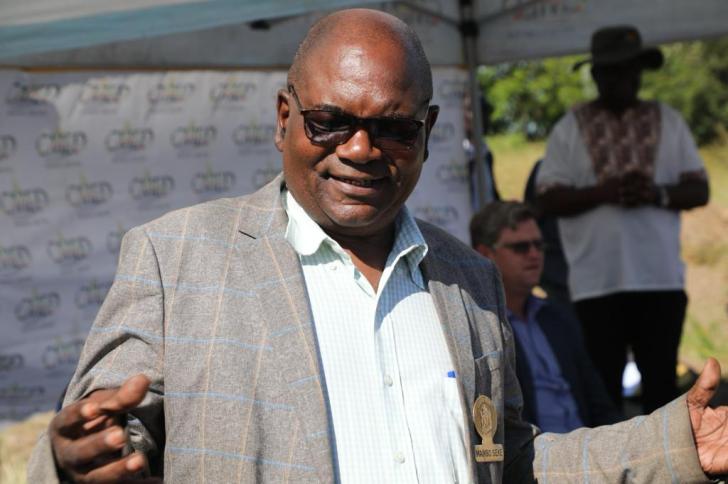News / Africa
Chief ordered to retract Zanu-PF slogans
5 hrs ago | Views

The High Court has found Chief Seke, Stanley Chimanikire, guilty of breaching the Constitution by chanting Zanu-PF political slogans while addressing a gathering, and ordered him to publish a public retraction within seven days.
Justice Samuel Deme delivered the judgement in a case filed by citizen Esther Vongai Zimudzi, who argued that the chief's conduct infringed her political rights under Section 67 of the Constitution. She further contended that Chimanikire's actions violated Section 281(2), which prohibits traditional leaders from engaging in partisan politics.
Evidence presented in court included a recording of Chief Seke addressing attendees with the words: "2030 VaMnangagwa vanenge vachitonga; Pamberi ne Zanu-PF; Pasi nemhandu" - translating to "Mnangagwa will still be ruling in 2030, forward with Zanu-PF, down with the enemies."
While Chief Seke admitted making the remarks, he claimed they were spoken at a private gathering rather than a political rally, and intended as patriotic praise for President Emmerson Mnangagwa rather than partisan support.
Justice Deme dismissed this defence, ruling that Section 281(2)(c) clearly bars traditional leaders from promoting the interests of any political party, irrespective of the context or timing.
"The fact that the remarks were made at a private gathering does not absolve Chief Seke from the constitutional obligation imposed upon him as a traditional leader," Justice Deme stated.
The court ordered Chief Seke to publish a written retraction in a nationally circulated newspaper and to disseminate it through public and private media outlets within seven days. Additionally, the ruling must be circulated through the National Council of Chiefs and provincial assemblies.
A request to compel the Minister of Local Government to initiate disciplinary action against Chief Seke was dismissed on the grounds that the minister is not the appointing authority for traditional leaders. The judge also declined to award punitive legal costs, noting the right of all parties to defend themselves.
This ruling adds to ongoing debates about the political neutrality of traditional leaders — a contentious issue frequently raised by opposition parties and civil society groups concerned about chiefs' involvement in partisan politics.
Justice Samuel Deme delivered the judgement in a case filed by citizen Esther Vongai Zimudzi, who argued that the chief's conduct infringed her political rights under Section 67 of the Constitution. She further contended that Chimanikire's actions violated Section 281(2), which prohibits traditional leaders from engaging in partisan politics.
Evidence presented in court included a recording of Chief Seke addressing attendees with the words: "2030 VaMnangagwa vanenge vachitonga; Pamberi ne Zanu-PF; Pasi nemhandu" - translating to "Mnangagwa will still be ruling in 2030, forward with Zanu-PF, down with the enemies."
While Chief Seke admitted making the remarks, he claimed they were spoken at a private gathering rather than a political rally, and intended as patriotic praise for President Emmerson Mnangagwa rather than partisan support.
"The fact that the remarks were made at a private gathering does not absolve Chief Seke from the constitutional obligation imposed upon him as a traditional leader," Justice Deme stated.
The court ordered Chief Seke to publish a written retraction in a nationally circulated newspaper and to disseminate it through public and private media outlets within seven days. Additionally, the ruling must be circulated through the National Council of Chiefs and provincial assemblies.
A request to compel the Minister of Local Government to initiate disciplinary action against Chief Seke was dismissed on the grounds that the minister is not the appointing authority for traditional leaders. The judge also declined to award punitive legal costs, noting the right of all parties to defend themselves.
This ruling adds to ongoing debates about the political neutrality of traditional leaders — a contentious issue frequently raised by opposition parties and civil society groups concerned about chiefs' involvement in partisan politics.
Source - zimlive










































